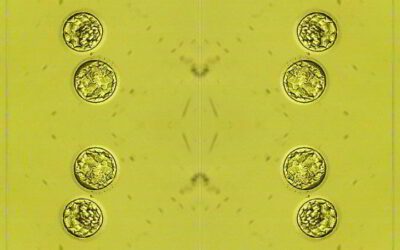Comprehensive Fertility Treatments | Gynaecology Procedures | Menopause Management | Pregnancy Care | Maternity & Birthing

This can happen due to multiple reasons, including embryonic, uterine, endometrial, and tubal causes. Doctors will give a piece of knowledge about its symptoms and reasons. Let us read about some of the symptoms and reasons that might lead to a failure of the procedure.
20+ Years Of Experience as Fertility Specialists
20 Years Of Experience as a Fertility Specialists
National Fertility Awards 2023
Call Us
+919990044555
Book An Appointment
Follow Us On
Reasons for the failure of blastocyst implantation
Here are some reasons behind the failure of blastocyst implantation:
1. Transplantation of embryos
Sometimes, the embryo that has been fertilized successfully, might not be implanted into the uterus effectively. Thus, they fail to implant.
2. The quality of the Embryo
The major reason why an IVF cycle is not successful is because of the quality of the embryo. Many embryos are not able to implant after transfer to the uterus because they are defective in some way. Even the embryos that look good in the lab may have defects that cause them to die rather than grow.
Mostly in all cases, your uterus does not allow you to conceive a baby. The embryo does not implant because it is not healthy enough to grow.
3. Age of the Eggs
When it comes to IVF, the age of the eggs is considered to be more important than the age of the women having IVF treatment. The quality and quantity of the women’s eggs, known as her ovarian reserve, begin to lose their ability as she gets elderly. This affects her chances of a successful IVF cycle as well.
On average, only about 25 percent of transferred embryos go on to result in live births of babies. But, this highly depends on the age of the woman’s eggs. Women who are under 35 years of age, using their own eggs for IVF have an implantation rate of about 45 percent. Whereas, women who are 40 to 42 years old using their own eggs have only about a 15 percent chance of implantation.
Older women who use donor eggs, which are donated by younger women, have better success rates with IVF. These are nearly the same as those of younger women. Egg quality is important in having healthy embryos, and younger eggs usually have better quality.
4. Ovarian response
Sometimes a woman’s ovaries do not respond to the fertility medications strongly enough to produce multiple eggs. Especially, if a woman is over 37 years old or has higher follicle-stimulating hormone (FSH) levels, she may not produce enough eggs. Chances are higher that IVF will be unsuccessful when this happens.
5. Chromosomal issues
One of the major factors in unsuccessful IVF is chromosomal abnormalities in the embryo. This is true for all human embryos, whether naturally conceived or developed in the embryology lab. These abnormalities are the reason behind most miscarriages as well as unsuccessful implantation in an IVF cycle.
Studies reveal, that starting in their 30s, as women age, the occurrence of chromosomal abnormalities in their eggs begins to increase. By the mid-40s almost 75 percent of a woman’s eggs have chromosomal abnormalities. In the case of a man, the sperm develops more chromosomal abnormalities as he ages as well, but at a much lower rate than a woman’s eggs.
6. Lifestyle factor
Many fertility clinics insist women quit smoking at least 3 months before starting IVF treatment. Women who smoke need twice as many IVF cycles to conceive as women who do not smoke. Women who are underweight or overweight are less likely to have successful IVF treatment.
The conclusion to this is, maintain a healthy weight. If you are overweight, losing about 10 percent of your body weight can make a positive difference in your ability to get pregnant.
FURTHER READING
When does a blastocyst not implant?
In case the blastocyst does not implant, the lining of the uterus (endometrium) makes arrangements for the developing blastocyst to connect to it through many internal changes. Without these changes, implantation will not occur, and the embryo sheds off during menstruation. If the zygote implants in any area beside the uterus, the consequence is an ectopic pregnancy.
Implantation failure can be treated
Many treatments are used commonly to help reduce the rate of implantation failure. Some of the suitable treatments are:
• Hormonal supplements
• blood thinning
• medications
• uterine or other pelvic corrective procedures
• antibiotic therapy
• limited immunotherapy
• IVF with PGT-A
Doctors and nurses at Gunjan IVF World handle the matter with utmost passion and care. We make sure that all the treatments are done properly which will help to understand how your body reacts. You will get enough information about all the symptoms as well. You can rely easily upon the treatments that we serve to make the procedures successful.
Share this with
Related Blogs
What happens after blastocyst transfer?
Before jumping to the immediate question first let’s have a small brief of what is blastocyst transfer. Blastocyst transfer is the transfer of embryos that have achieved a higher stage of development.
Can blastocyst fall out?
Maximum patients worry about what they can do or cannot do after an embryo transfer. They have the fear that if they do something wrong, the embryo would not attach or fall out.
Follow Us On
About Author






That’s great information! You have put lots of efforts into preparing this wonderful material! It helps lots of people! Useful information. I am very happy to read this. Thanks for giving us this useful information.
Informative contents
Thank you so much.. The content ,very helpful.
Thank you so much for preparing this work.My question has been answered in the best way.
Hello everyone
My daughter 39 1/2 years has had fertilized egg implantation.
Slow hormone levels but now rising significantly but they will perform ultrasound next week to confirm healthy pregnancy or notes?
She is very anxious and stressed.
Hello.
If the HCG hormone is in a rising trend it indicates a viable pregnancy so no need to worry just wait for the ultrasound which will confirm whether the baby is growing well.
Thanks for your writeups it is so helpful. I just had a failed IVF- the result turned Negative, and the bleeding continues over 7 days. what could be happening and i feel as there is something inside. some cramping and pains. what shouid i do?
/
We can feel your pain and understand your emotions. The best way to find remedy is to consult experts. Please get in touch with your gynaec or with us
My implantation was done on 26 December and I’m 10 weeks now. My HCG count has maximum at 309 and started decreasing and reached at 295.1 at 10 week. Is it possible to increase HCG count with booster? Or shall I continue thinking M pregnent or not. Please suggest me.
Good evening, pls am 44 ,the embryo was transferred on 2rd of February and after 2weeks the results came out positive,but today scan and blood test showed negative
Pls what can you advise?
The Dr said maybe is the endometrium dt was 6.73
Pls what can I do to the endometrium
Sorry that your result was negative..there are various treatment options for thin endometrium like a high dose of estrogen, endometrial scratching, platelet-rich plasma instillation, GCSF injection, discuss with your doctor these options, or you can consult us for further information.
Hi Dr. Gunjan Gupta,
My HCG hormone was lower than 3 after 2 weeks of blastocyst transfer. I did not give up my hope and continued my medicine. I have no spotting/bleeding/period or abnormal pain so far. I’m wondering if its a negative pregnancy then why there is no bleeding yet? I will do an ultrasound exactly on the 5 weeks of embryo (blastocyst) transfer.
There is no bleeding as you are continuing the medicines.You may underdo ultrasound as desired. If the ultrasound report doesn’t indicate pregnancy , you may contact us at 9990044555 to book your online appointment.
You need to take part in a contest first of the best blogs on the internet. I’ll suggest this web site!
You’d superb suggestions there. I did a research about the issue and identified that likely almost anyone will agree with your web page.
I am crazy about this blog. I have visit so many time to this blog. I have found this blog from Google. I have received a bunch of information. I really appreciate to meet to it and i emphasize to this blog. My curiosity to learn more and more on this blog.
its great .i ll share it with everyone i know.
I admire this article for the well-researched content and excellent wording. I got so involved in this material that I couldn’t stop reading. I am impressed with your work and skill. Thank you so much.
No doubt this is an excellent post I got a lot of knowledge after reading good luck. Theme of blog is excellent there is almost everything to read, Brilliant post.